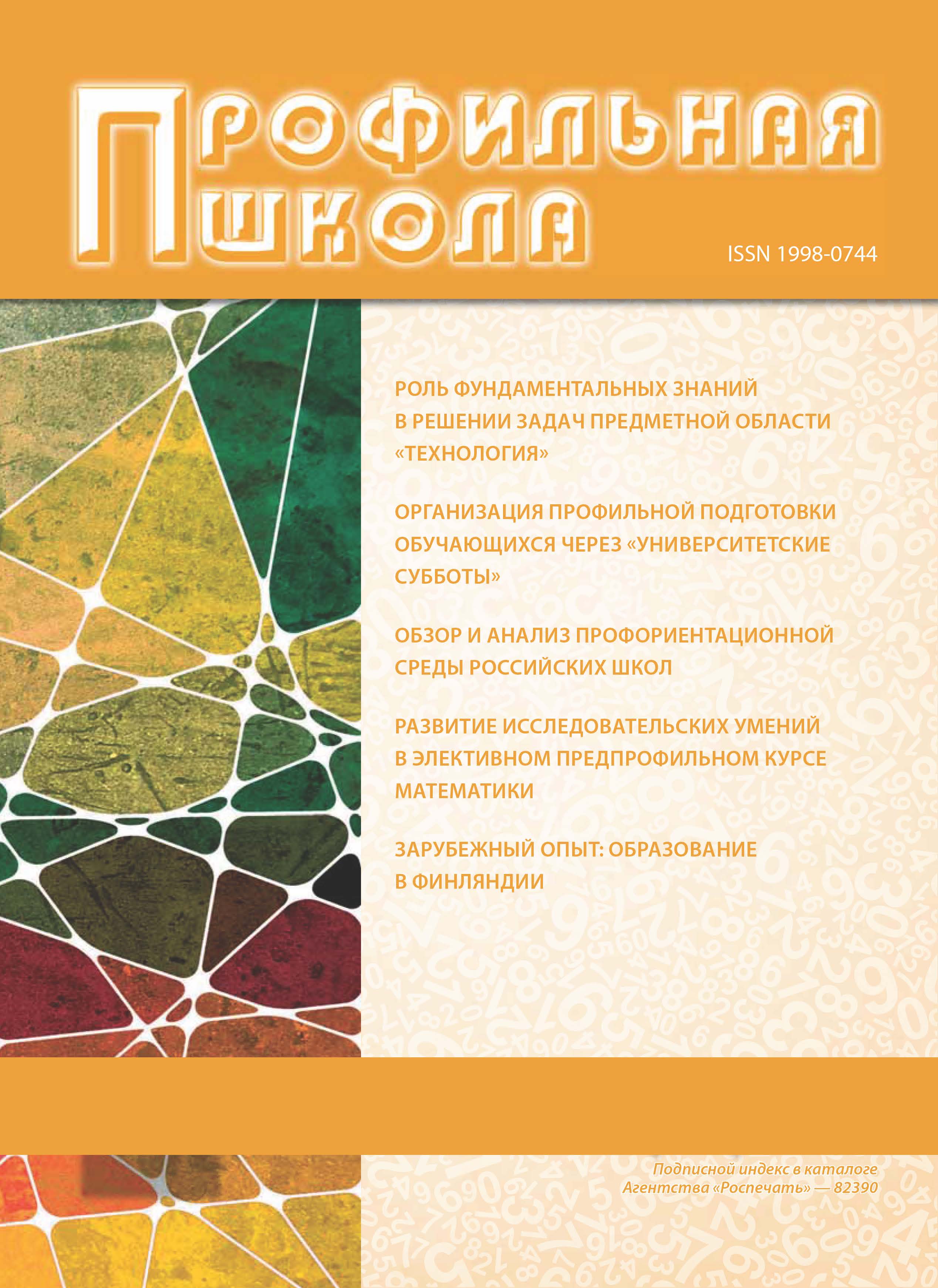Russian Federation
This article addresses the issue of introducing engineering knowledge bases into general educational practice for the successful self-determination of schoolchildren and the formation of their respective competencies. Today, an engineer is a person who designs our modern life in many of its forms. Since progress does not stand still, it is in its professional activities that it is often faced with the need to constantly evolve and master ever newer software and hardware. To solve such non-standard tasks, it needs not only to possess technical knowledge and ability to self-improvement, but also to have engineering thinking. As a result of advances in computer technology and the digitalization of our society, computers have become better people to cope with linear and patterned tasks. It created great competition in the labor market among professions, whose work is based on a clear algorithm of actions, and also caused the need to improve the level of training of an engineer.
education, engineering competence, information technology, mechanisms, principles.
1. Adol’f V. Podgotovka pedagoga k innovatsionnoy deyatel’nosti v protsesse professional’nogo stanovleniya [Preparation of teachers to innovation activity in the process of professional formation]. AlmaMater: Vestnik vysshey shkoly [Alma mater: Bulletin of higher school]. 2012, I. 10, pp. 18-20.
2. Butorina T.S. Istoriya pedagogiki i obrazovaniya [History of pedagogy and education]. Moscow, Akademiya Publ., 2013. 432 p. EDN: https://elibrary.ru/SBBJHN
3. Voronov V.V. Pedagogika shkoly: novyy standart [Pedagogy of school: new standard]. Moscow, PO Rossii Publ., 2012. 288 p. EDN: https://elibrary.ru/UKWQVP
4. Vul’fov B.Z. Pedagogika [Pedagogy]. Moscow, Yurayt Publ., 2012. 724 p.
5. Grigor’eva S.G. K probleme innovatsionnoy deyatel’nosti pedagoga v sovremennykh usloviyakh [To the problem of innovative activity of the teacher in modern conditions]. Srednee professional’noe obrazovanie [Secondary vocational education]. - 2010, I. 11, pp. 9-12. EDN: https://elibrary.ru/LQDTDI
6. Dzhurinskiy A.N. Istoriya pedagogiki i obrazovaniya [History of pedagogy and education]. Moscow, Yurayt Publ., 2013. 400 p.
7. Kovaleva G.S. Sostoyanie rossiyskogo obrazovaniya [State of Russian education]. Pedagogika [Pedagogy]. 2012, I. 2, pp. 80-88.
8. Strategiya innovatsionnogo razvitiya Rossiyskoy-Federatsiinaperioddo 2020 goda [Strategy of innovative development of the Russian Federation for the period up to 2020]. Available at: http://ac.gov.ru/files/attachment/4843.pdf






